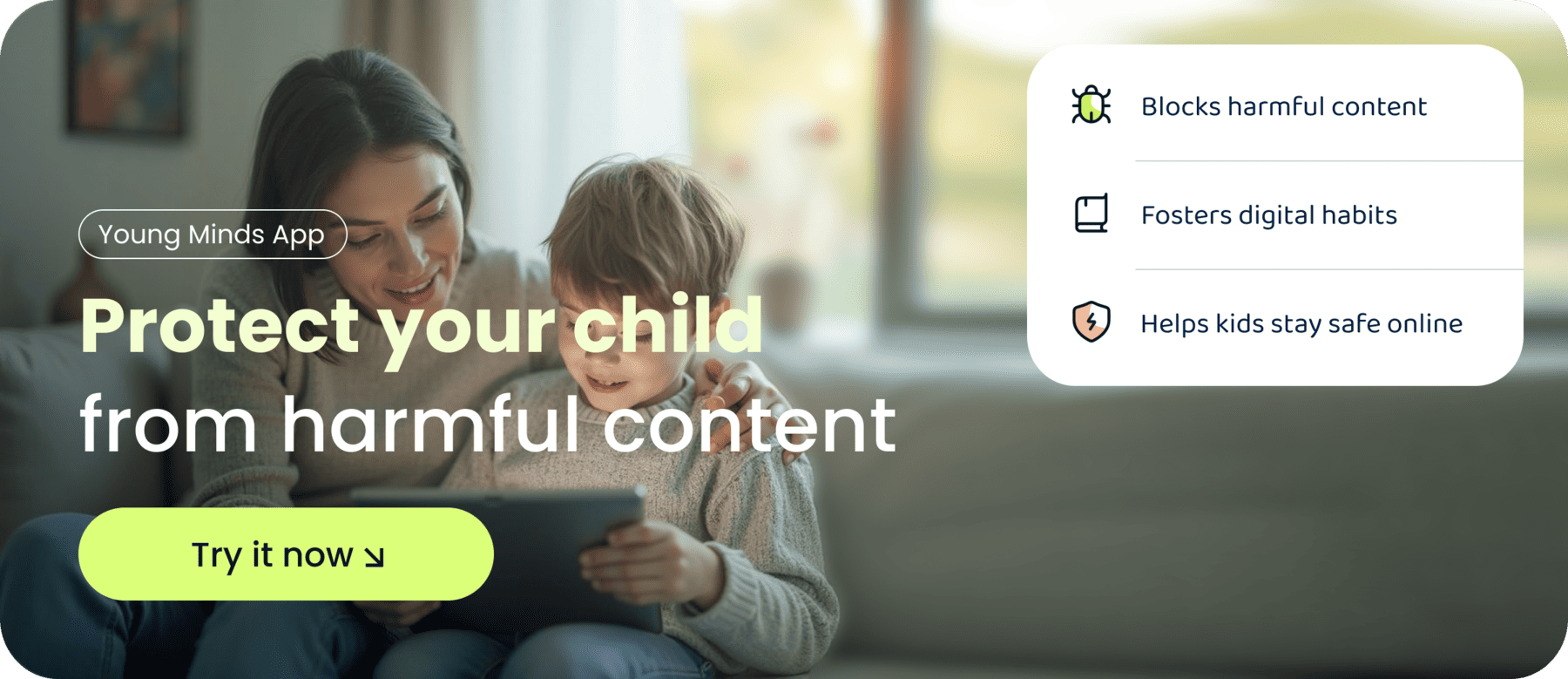In today's fast-paced digital age, it seems as though everyone is glued to their smartphones. It's not just adults, but children and teenagers as well. As parents, we may worry about the impact that excessive phone use can have on our children's well-being and development. One particular concern that has arisen is the potential link between phone addiction and Attention Deficit Hyperactivity Disorder (ADHD). In this article, we will explore the connection between these two phenomena and discuss strategies for managing them.
Understanding ADHD
Before exploring the link between phone addiction and ADHD, it’s important to first understand what ADHD really is.
ADHD (Attention Deficit Hyperactivity Disorder) is a neurodevelopmental condition that affects both children and adults. It involves ongoing patterns of inattention, hyperactivity, and impulsivity that can interfere with daily life, learning, and relationships.
ADHD is more than just being easily distracted or restless—it’s a complex neurological disorder that requires proper diagnosis, understanding, and treatment.
Defining ADHD
As mentioned earlier, ADHD stands for Attention Deficit Hyperactivity Disorder. It is marked by persistent symptoms that affect focus, behavior, and emotional control.
These symptoms can have wide-reaching effects, influencing:
- Academic performance
- Work productivity
- Relationships and social interactions
- Overall quality of life
It’s important to note that ADHD is not caused by phone addiction. However, individuals with ADHD may be more likely to engage in excessive phone use as a way to cope with restlessness or distractibility.
While ADHD presents challenges, it also comes with unique strengths. Many people with ADHD are:
- Highly creative and innovative
- Great at thinking outside the box
- Energetic and driven by curiosity
By recognizing and building on these strengths, individuals with ADHD can learn to thrive in both personal and professional settings.
Symptoms and Diagnosis of ADHD
ADHD symptoms can vary between individuals but generally fall into three main categories:
1. Inattention
- Difficulty sustaining focus or following through on tasks
- Easily distracted by surrounding stimuli
- Trouble organizing or managing time effectively
2. Hyperactivity
- Excessive fidgeting or restlessness
- Talking excessively or feeling unable to stay still
- Struggling to relax quietly
3. Impulsivity
- Acting without thinking about the consequences
- Interrupting conversations or activities
- Engaging in risky or impatient behaviors
Diagnosing ADHD
Diagnosis requires a comprehensive assessment by a qualified healthcare professional.
This typically involves:
- A detailed medical and behavioral history
- Observation of symptoms across multiple settings (home, school, work)
- The use of standardized assessment tools
An accurate diagnosis is essential for creating an effective treatment plan. Early detection and intervention can greatly improve symptom management and overall well-being.
In 2015 a study by UCL researchers found that smartphone use can cause "inattention deafness", where users become "temporarily deaf" because they are concentrating on their smartphones instead of what's going on around them.
The Rise of Phone Addiction
With the rapid growth of technology, smartphone use has become a normal part of everyday life for people of all ages. It’s common to see children and teenagers spending hours on their phones. While smartphones are valuable tools for communication, learning, and entertainment, excessive use can lead to phone addiction.
In today’s digital world, it’s important to understand what phone addiction really means.
Phone addiction, also known as problematic smartphone use, refers to a compulsive need to constantly use one’s phone—often leading to negative effects.
It can show up in different ways, such as:
- Spending long hours on the phone without realizing it
- Feeling anxious or restless when unable to use it
- Struggling to cut back on usage
- Ignoring other activities, responsibilities, or relationships
Signs and Symptoms of Phone Addiction
Recognizing the warning signs can help parents identify whether their child might be at risk.
Common symptoms include:
- Constantly checking the phone, even without notifications
- Losing interest in hobbies or face-to-face interactions
- Neglecting schoolwork, chores, or responsibilities
- Feeling irritated or anxious when phone use is restricted
- Spending more time online than intended
Phone addiction can also affect mental and emotional well-being. It often leads to feelings of anxiety, stress, or depression, as screen time replaces real-world connections. The constant search for validation and the fear of missing out (FOMO) can leave individuals feeling lonely and dissatisfied.
The Impact of Phone Addiction on Daily Life
Excessive phone use can disrupt many aspects of daily living—especially for people with ADHD.
It may:
- Worsen inattention and impulsivity
- Interfere with academic or work performance
- Strain social relationships
- Disturb sleep patterns due to blue light exposure
The blue light emitted from screens affects the body’s melatonin levels, making it harder to fall or stay asleep.
Additionally, frequent notifications and endless scrolling make it difficult to focus and complete tasks efficiently, reducing productivity both at home and in school.
To manage phone addiction effectively, it’s important to:
- Set designated phone-free times, such as during meals or before bed
- Engage in alternative activities, like outdoor play, reading, or hobbies
- Seek help from mental health professionals or support groups when needed
The Connection Between ADHD and Phone Addiction
Research shows a strong link between ADHD and problematic smartphone use.
People with ADHD may be more vulnerable to phone addiction due to challenges with impulse control, time management, and a strong need for instant gratification.
ADHD and Increased Vulnerability
Individuals with ADHD often:
- Struggle with impulsivity and seek quick rewards
- Are more sensitive to novelty and stimulation
- Experience hyperfocus, which can lead to spending long periods on engaging apps or games
The fast-paced and unpredictable nature of smartphone content provides constant stimulation, making it especially appealing for those with ADHD.
How Phone Addiction Worsens ADHD Symptoms
Excessive phone use can, in turn, make ADHD symptoms worse.
- Constant alerts and distractions make focusing harder
- Irregular sleep patterns can increase inattention and fatigue
- Overuse can reinforce impulsive behaviors and poor time management
This creates a cycle: individuals with ADHD turn to their phones for stimulation or comfort, but excessive use then intensifies their symptoms.
The Role of Dopamine in ADHD and Phone Addiction
Dopamine, the brain’s “reward” chemical, plays a major role in both ADHD and phone addiction.
People with ADHD often have lower dopamine levels, which drives them to seek extra stimulation. Smartphone apps provide quick bursts of dopamine through likes, notifications, and messages—reinforcing the urge to keep checking the device.
Many apps use intermittent reinforcement, where rewards (like new messages or updates) appear unpredictably. This taps directly into the brain’s reward system, creating a powerful habit loop that is especially difficult for those with ADHD to resist.
Managing ADHD and Phone Addiction
Addressing both ADHD and phone addiction requires a multifaceted approach. By implementing effective strategies, parents can help their children achieve a balanced lifestyle that promotes healthy development.
Strategies for Reducing Phone Use
Encouraging healthy phone habits starts with setting clear boundaries and establishing screen-free times and zones. Parents can also model responsible phone use by practicing self-regulation and limiting their own screen time. Additionally, engaging in alternative activities, such as outdoor play, hobbies, and social interactions, can help reduce dependence on phones.
Therapeutic Approaches to ADHD
ADHD is a complex condition that often requires professional intervention. Therapeutic approaches such as behavioural therapy, counseling, and medication can be beneficial in managing ADHD symptoms. Working closely with healthcare professionals and educators can ensure individualised support for children with ADHD.
The Importance of a Balanced Lifestyle
Promoting a balanced lifestyle is crucial for both individuals with ADHD and those at risk of phone addiction. This includes regular physical exercise, healthy eating habits, and sufficient sleep. Creating a nurturing and supportive environment that values real-life experiences and face-to-face interactions can contribute to improved overall well-being.
While the link between phone addiction and ADHD is complex, it is important for parents to be mindful of their children's phone use. By understanding ADHD, recognising phone addiction warning signs, and implementing effective strategies, parents can help their children navigate the digital world while promoting healthy development and well-being.
If you're seeking additional resources to support your teen's journey towards a healthier digital lifestyle and better management of ADHD, the Young Minds App is here to help. Explore our website for more insightful blogs, practical guides, and interactive tools tailored to the needs of teens and young adults. Our content is designed to motivate and build positive habits that contribute to mental well-being.
Parents also ask:
Does phone usage affect ADHD?
Yes, phone usage can affect ADHD symptoms by exacerbating difficulties with attention, impulsivity, and hyperactivity. While excessive screen time doesn't directly cause ADHD, it can worsen symptoms and make it harder to manage. However, not all phone usage is harmful, and moderate, purposeful use can be beneficial. Strategies like setting limits on screen time and promoting mindfulness can help mitigate these effects.
Should kids with ADHD have phones?
The decision to give a child with ADHD a phone depends on factors like their age, maturity, and family situation. While smartphones offer benefits, they can also present challenges like distractions. Parents should set clear boundaries and consider alternatives like basic phones or parental controls. It's crucial to make decisions based on the child's individual needs and with input from healthcare professionals.
How does technology affect children with ADHD?
Technology can both help and hinder children with ADHD. While educational apps can engage them, excessive screen time may worsen symptoms like attention difficulties and impulsivity. It's important for parents to set limits on screen time and encourage balanced activities to mitigate these effects.
What can make ADHD worse in children?
Factors that can worsen ADHD symptoms in children include excessive screen time, lack of structure, poor sleep habits, unhealthy diet, stressful situations, lack of physical activity, environmental triggers, coexisting conditions, negative feedback, and medication mismanagement.





